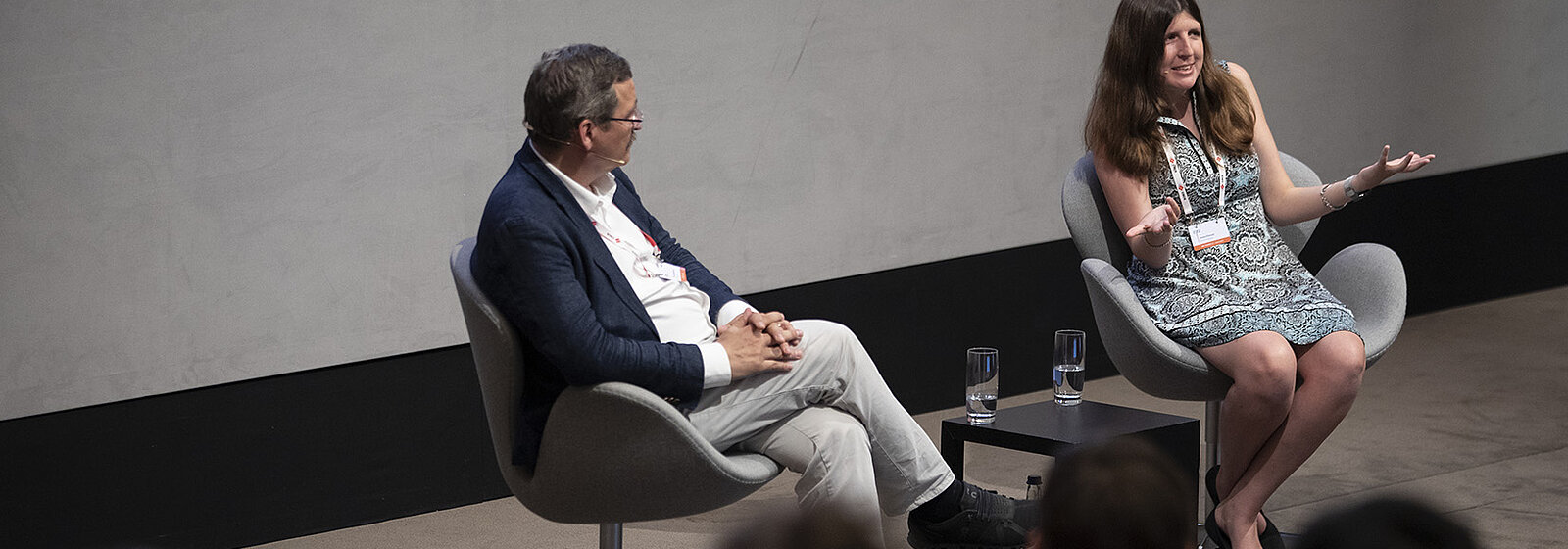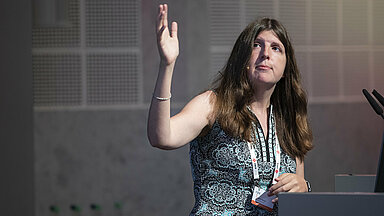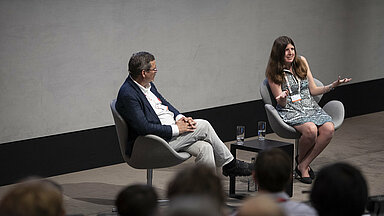July 08, 2022 - by Simone Ulmer
During the PASC22 conference ETH Board President Michael Hengartner interviewed researcher Emma Pierson, who holds a secondary joint appointment as an Assistant Professor of Population Health Sciences at Weill Cornell Medical College, about her work in developing data science and machine learning methods to study inequality. Her projects are "incredibly interdisciplinary", the scientist emphasised as she briefly presented her research. She introduced three major research projects that illustrate her point: For these projects, she worked with doctors, journalists, and epidemiologists to reveal how social inequality impacts the perception of pain; how inequality in policing affects specific ethnic groups, such as persons of colour; or how social inequality and the resulting mobility patterns influence infection rates during the COVID-19 pandemic.
Pierson went on to explain how use of data science to better understand the biases underlying social inequality are already helping to reduce these negative effects. For example, her work on racial disparities in police traffic stops led the Los Angeles Police Department to announce a reduction of random stops.
In the course of the discussion with Hengartner, Pierson explained how, as a computer scientist, she ended up studying social justice and why she is convinced that this topic is not a niche topic and will gain increasingly more attention in the future. Indeed, Pierson said, ten years ago there would certainly not have been a conference with the motto "Computing and Data...for all Humankind".
In 2019, Pearson was listed in Forbes magazine as one of the “30 Under 30 in Science”. MIT Technology Review listed her in 2021, then 30, among "35 Innovators Under 35". How did she achieve such a stellar career in such a short time? When asked, Pierson advised young researchers to be selective, to only work with people who are kind and support you in your career— and be kind to yourself. Have a good work life balance but find things you would like to work on all the time — problems that inspire and motivate you.
At the end of the dialogue Hengartner asked her what it would take to make her research field more attractive to women, Pierson said: "A lot of changes." She admitted she can only speak for the USA, as she has no experience in Europe, but there it is important that the culture and climate at universities improve.
Learn more and immerse yourself in the exciting dialogue:
PASC Conference
The Platform for Advanced Scientific Computing (PASC) Conference is an interdisciplinary conference in HPC that brings together domain science, applied mathematics and computer science – where computer science is focused on enabling the realization of scientific computation.
The PASC Conference provides three days of stimulating and thought-provoking technical sessions, including keynote presentations, mini-symposia, peer-reviewed papers, panels and poster sessions. The conference is co-sponsored by ACM SIGHPC, and full papers are published in the ACM Digital Library.




